The Oscar Project
In which I will watch every movie that has ever won the Oscar for Best Original Screenplay.
The Oscar Project
The Oscar race has ended, but The Oscar Project has just begun. In the coming weeks and months, I will watch and write about every film that has ever won the Academy Award for Best Original Screenplay. This is a new addition to my Substack newsletters for Paid Subscribers and will appear in inboxes on occasional Tuesdays.
Starting with the first winner in 1940, The Great McGinty, written by Preston Sturges, and ending with this year’s Anora, written by Sean Baker, I’ll analyze each movie through the lens of my screenwriting life—drawing on the tools I’ve developed, borrowed or stolen over the years.
The Oscar Project is not intended as a movie review, but rather one person’s experience (mine, Bill Gullo) as I watch these movies while thinking about screenwriting, storytelling and life in general. You can expect the same pragmatic advice, blunt truths and wily sense of humour you find in all my posts.
All told, I will watch 85 films to fully realize the venture, and then, armed with this cinematic knowledge — and perhaps a few colorful graphs or charts — I’ll set out to write an Oscar-winning screenplay of my own. If that sounds impossible or harebrained to you, then I know I’m on the right track.
And yes I will even watch Crash (2004), a movie that made me regret having eyes and ears. I hope that provides a sense of my commitment to this project.
At the end of this post, thanks to Wikipedia and AI, you’ll find a list of the films that have won the award since it was introduced in 1940. If you see a mistake, please send me a message and I’ll correct it, but if you want to be my writing & research assistant that would be even better.
The Oscar Goes To…
Each year, the Oscar for Best Original Screenplay is given to the best screenplay not based upon previously published material. Hence, original.
I’m no film historian, but Wikipedia sure helps me sound like one. According to that source, the Academy Award for Best Original Screenplay was created in 1940 as a separate writing award from the Academy Award for Best Story. Beginning with the Oscars for 1957, the two categories were combined to honor only the screenplay.
So apparently there used to be an Oscar for Best Story, but I don’t actually care. If you care, researching that history is definitely one way to spend your time, and if you do learn something interesting please share with us here at Screenwriting is Writing (with me, Bill Gullo).
One reason to celebrate this particular Oscar category is because it is uniquely challenging to take an Original Idea from someone’s head and then translate it into a screenplay that is cast, produced, shot, edited and released to audiences. This year, Sean Baker snuck back to the mic after Anora won Best Picture to celebrate and encourage indie films; that’s the way I feel about the Original Screenplay, and yes Anora definitely had one of those.
Many producers and studios are reluctant to invest in Original Ideas because they don’t come with what they call a built-in audience which makes people in the marketing department angry.
The 85 Movies
While 85 films represent a lot of popcorn in my future, they do not represent many women or BIPOC writers. After the list of films below, I will list the names of winners in those demographics. SPOILER: there (3) solo women writers and three (3) solo BIPOC writers have won the award and a handful more who won as part of a team.
The Academy of Motion Picture Arts & Sciences clearly has many flaws and biases (#Oscarssowhite), but our clear-eyed, goose-stepping government has told us that diversity and representation doesn’t matter anymore so let’s move on like many Democratic leaders. The point of The Oscar Project after all, is not to highlight the criminal disparities in our racist, patriarchal system. We’re here to have a good time!
Pick a Genre Any Genre
I’ve wanted to do The Oscar Project for years. Originally I dreamed of it as a book (remember books?), but now that I’ve found a home on Substack, I’m excited to publish the essays here. The idea was partly inspired by an early conversation with my agent at the time who told me I should “pick a genre.”
To be honest, this was perfectly sound advice. After enjoying my well-written intimate dramas that could never get produced, my agent encouraged me to pick a genre in order to be a more commercially viable writer. Again, perfectly fine advice, but at that stage of my life I simply was not thinking or creating through a genre lens. If I had been I suspect I’d be a lot more ‘successful’ in the traditional $ense.
As I pondered my chosen genre, I was overcome with uncertainty about the task at hand. What should my genre be? And would I throw a genre reveal party? If I chose science fiction, the gift bag could include space helmets and ray guns, but if I chose horror, the bags could be filled with spiders and worms. It was a lot to think about.
Eventually I announced my intention to write Oscar movies. My agent thought I had misunderstood her and was not thrilled, but this was the same person who answered my question, “What’s selling now?” by saying, “Scripts where you can understand the movie by reading the title. Like, ‘I want to fuck your sister.” At the time, I laughed and joked, “Oh yeah, I’m working on something called, “I Fucked Your Nanny.” She laughed and paused, slightly curious to hear more.
I did eventually gravitate toward a couple of genres—psychological thrillers, where I could explore odd psychological spaces, and science fiction, which allowed me to disguise social commentary beneath a commercial shell. Currently, I have a sci-fi feature being sent out to talent, and my script Bastard—a dramatic psychological thriller—managed to attract Martin Scorsese as an executive producer, thanks in part to the incredible filmmaker and cinematographer Rodrigo Prieto, who was attached to direct. But I’ve yet to write something that checks the Oscar-worthy boxes. Perhaps The Oscar Project will be the key.
The Great McGinty
My first entry will be Preston Sturgess’ 1940 classic. A satire on political corruption, The Great McGinty does not feature an ignorant, hateful, orange narcissist, but the story does follow a down and out guy — a veritable ‘bum’ as they said back then — who rises through the ranks of a corrupt political machine.
While The Oscar Project itself is not politically motivated, many Best Original Screenplay winners, like The Great McGinty, explore themes of political corruption, abuse of power, or institutional failure—Network (1976), The Lives of Others (2006), Spotlight (2015), and many more.
As we navigate these next four years, it will be interesting to look back at defining films of the past while moving through this redefining period in our country’s history. That’s kinda the point of art—to provide context and perspective on what it means to be alive at any given time on planet Earth.
Stay tuned for the first official installment of The Oscar Project. As always, THANK YOU for supporting independent writers in all the ways. If this project sounds exciting to you, please consider Upgrading to a Paid Subscription now
And Now…
Here are the 85 films that have won the Academy Award for Best Original Screenplay since the category was introduced in 1940. (following info generated by AI)
1940s
1940 – The Great McGinty – Preston Sturges
1941 – Here Comes Mr. Jordan – Sidney Buchman, Seton I. Miller
1942 – Citizen Kane - Orson Welles, Herman J. Mankiewicz.
1943 – Princess O'Rourke – Norman Krasna
1944 – Going My Way – Frank Butler, Frank Cavett
1945 – Marie-Louise – Richard Schweizer
1946 – The Seventh Veil – Muriel Box, Sydney Box
1947 – Miracle on 34th Street – George Seaton
1948 – The Search – Richard Schweizer, David Wechsler
1949 – Battleground – Robert Pirosh
1950s
1950 – Sunset Boulevard – Charles Brackett, Billy Wilder, D.M. Marshman Jr.
1951 – An American in Paris – Alan Jay Lerner
1952 – The Lavender Hill Mob – T.E.B. Clarke
1953 – Titanic – Charles Brackett, Richard Breen, Walter Reisch
1954 – On the Waterfront – Budd Schulberg
1955 – Interrupted Melody – William Ludwig, Sonya Levien
1956 – The Red Balloon – Albert Lamorisse
1957 – Designing Woman – George Wells
1958 – The Defiant Ones – Nedrick Young, Harold Jacob Smith
1959 – Pillow Talk – Stanley Shapiro, Maurice Richlin
1960s
1960 – The Apartment – Billy Wilder, I.A.L. Diamond
1961 – Splendor in the Grass – William Inge
1962 – Divorce Italian Style – Ennio De Concini, Alfredo Giannetti, Pietro Germi
1963 – How the West Was Won – James R. Webb
1964 – Father Goose – Peter Stone, Frank Tarloff
1965 – Darling – Frederic Raphael
1966 – A Man and a Woman – Claude Lelouch, Pierre Uytterhoeven
1967 – Guess Who’s Coming to Dinner – William Rose
1968 – The Producers – Mel Brooks
1969 – Butch Cassidy and the Sundance Kid – William Goldman
1970s
1970 – Patton – Francis Ford Coppola, Edmund H. North
1971 – The Hospital – Paddy Chayefsky
1972 – The Candidate – Jeremy Larner
1973 – The Sting – David S. Ward
1974 – Chinatown – Robert Towne
1975 – Dog Day Afternoon – Frank Pierson
1976 – Network – Paddy Chayefsky
1977 – Annie Hall – Woody Allen, Marshall Brickman
1978 – Coming Home – Waldo Salt, Robert C. Jones, Nancy Dowd
1979 – Breaking Away – Steve Tesich
1980s
1980 – Melvin and Howard – Bo Goldman
1981 – Chariots of Fire – Colin Welland
1982 – Gandhi – John Briley
1983 – Tender Mercies – Horton Foote
1984 – Places in the Heart – Robert Benton
1985 – Witness – Earl W. Wallace, William Kelley, Pamela Wallace
1986 – Hannah and Her Sisters – Woody Allen
1987 – Moonstruck – John Patrick Shanley
1988 – Rain Man – Ronald Bass, Barry Morrow
1989 – Dead Poets Society – Tom Schulman
1990s
1990 – Ghost – Bruce Joel Rubin
1991 – Thelma & Louise – Callie Khouri
1992 – The Crying Game – Neil Jordan
1993 – The Piano – Jane Campion
1994 – Pulp Fiction – Quentin Tarantino, Roger Avary
1995 – The Usual Suspects – Christopher McQuarrie
1996 – Fargo – Joel Coen, Ethan Coen
1997 – Good Will Hunting – Ben Affleck, Matt Damon
1998 – Shakespeare in Love – Marc Norman, Tom Stoppard
1999 – American Beauty – Alan Ball
2000s
2000 – Almost Famous – Cameron Crowe
2001 – Gosford Park – Julian Fellowes
2002 – Talk to Her – Pedro Almodóvar
2003 – Lost in Translation – Sofia Coppola
2004 – Eternal Sunshine of the Spotless Mind – Charlie Kaufman, Michel Gondry, Pierre Bismuth
2005 – Crash – Paul Haggis, Bobby Moresco
2006 – Little Miss Sunshine – Michael Arndt
2007 – Juno – Diablo Cody
2008 – Milk – Dustin Lance Black
2009 – The Hurt Locker – Mark Boal
2010s
2010 – The King's Speech – David Seidler
2011 – Midnight in Paris – Woody Allen
2012 – Django Unchained – Quentin Tarantino
2013 – Her – Spike Jonze
2014 – Birdman – Alejandro G. Iñárritu, Nicolás Giacobone, Alexander Dinelaris Jr., Armando Bo
2015 – Spotlight – Josh Singer, Tom McCarthy
2016 – Manchester by the Sea – Kenneth Lonergan
2017 – Get Out – Jordan Peele
2018 – Green Book – Peter Farrelly, Nick Vallelonga, Brian Currie
2019 – Parasite – Bong Joon-ho, Han Jin-won
2020s
2020 – Promising Young Woman – Emerald Fennell
2021 – Belfast – Kenneth Branagh
2022 – Everything Everywhere All at Once – Daniel Kwan, Daniel Scheinert
2023 – Anatomy of a Fall – Justine Triet, Arthur Harari
2024 – Anora – Sean Baker
FEMALE WINNERS (info generated by AI)
There have been three (3) women who have won the award as a solo writer:
Sofia Coppola (Lost in Translation, 2003),
Diablo Cody (Juno, 2007)
Emerald Fennell (Promising Young Woman, 2020).
And four (4) female writers who’ve won as part of a writing team:
Muriel Box (The Seventh Veil, 1946) – Co-wrote with Sydney Box,
Sonya Levien (Interrupted Melody, 1955) – Co-wrote with William Ludwig,
Justine Triet (Anatomy of a Fall, 2023) – Co-wrote with Arthur Harari
Fran Walsh (The Lord of the Rings: The Return of the King, 2003) – Co-wrote with Peter Jackson and Philippa Boyen.
BIPOC WINNERS (info generated by AI)
Let's count the number of Best Original Screenplay winners who are Black, Indigenous, or People of Color (BIPOC).
Black Writers
Jordan Peele (Get Out, 2017) – First Black winner in this category
Latino/Hispanic Writers
Pedro Almodóvar (Talk to Her, 2002) – Spanish
Alejandro G. Iñárritu (Birdman, 2014) – Mexican (co-wrote with three others)
Armando Bo (Birdman, 2014) – Argentinian (co-wrote with three others)
Nicolás Giacobone (Birdman, 2014) – Argentinian (co-wrote with three others)
Guillermo Arriaga (Babel, 2006) – Mexican (Nominated, but did not win)
Asian Writers
Bong Joon-ho (Parasite, 2019) – South Korean (co-wrote with Han Jin-won)
Han Jin-won (Parasite, 2019) – South Korean (co-wrote with Bong Joon-ho)
Indigenous Writers
No known Indigenous writers have won in this category to date.
Total BIPOC Winners
Solo wins: 2 (Get Out, Talk to Her)
Co-written wins: 5 (Birdman, Parasite)
Total wins involving BIPOC writers: 7
Again, if you see mistakes here, blame the robots and let me know!





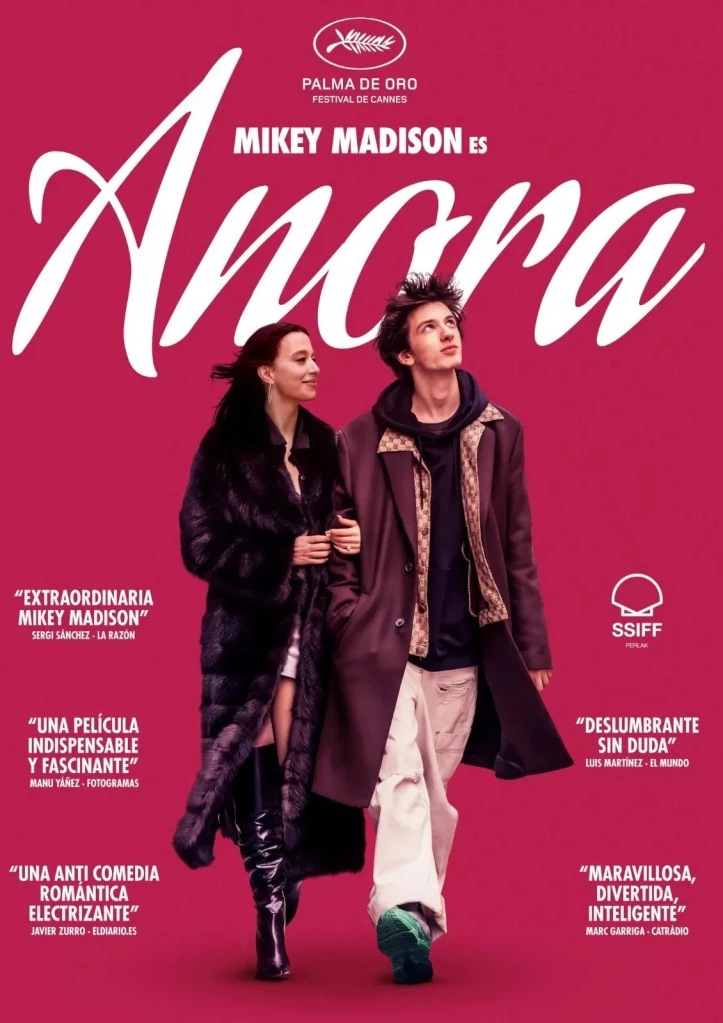
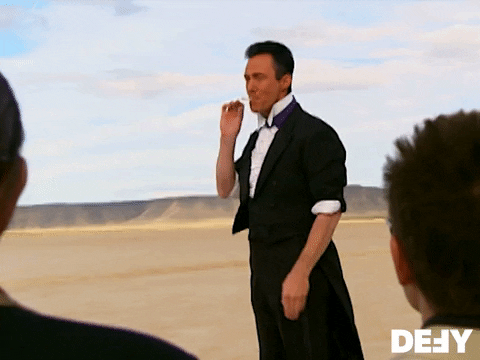
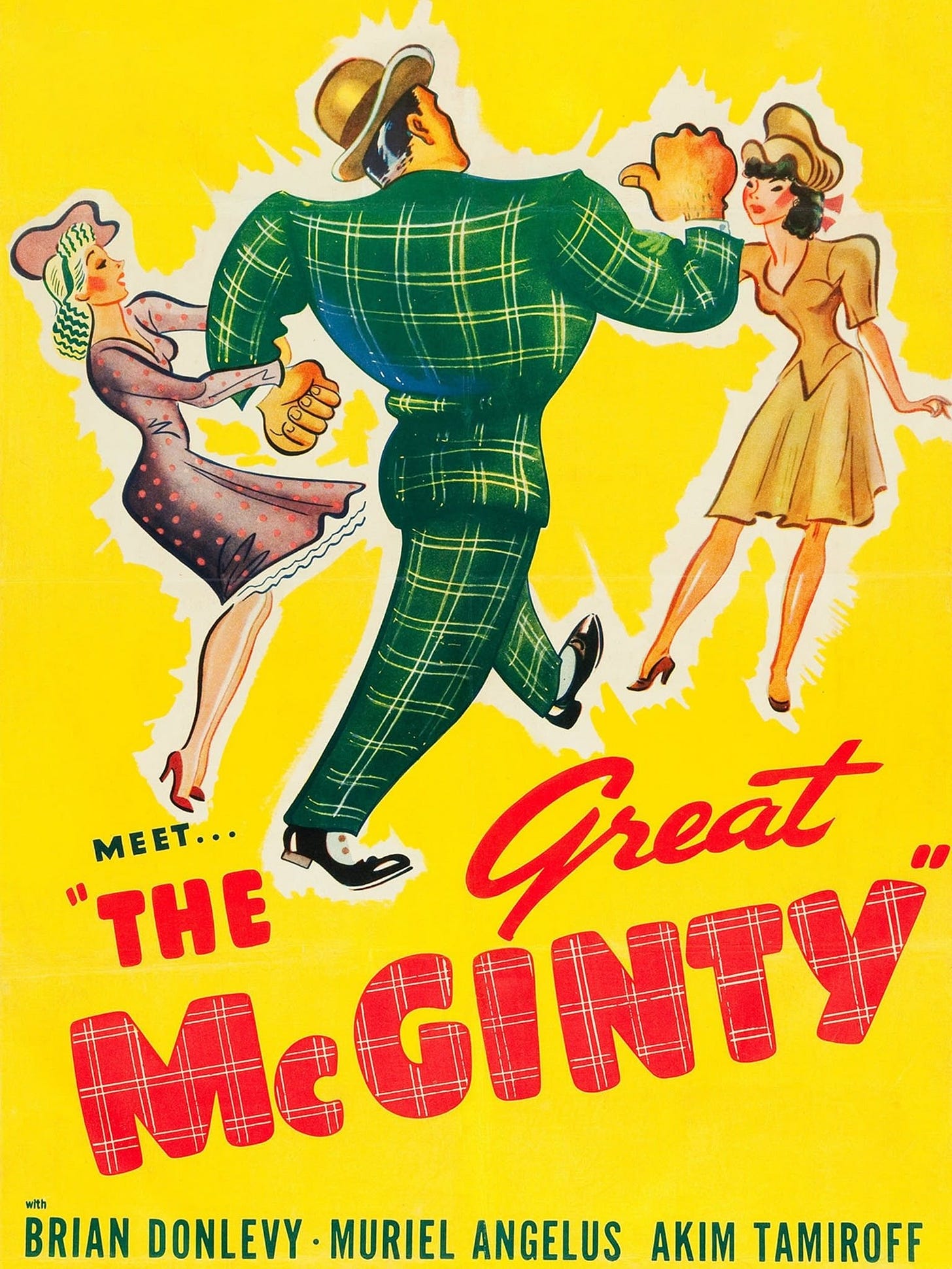
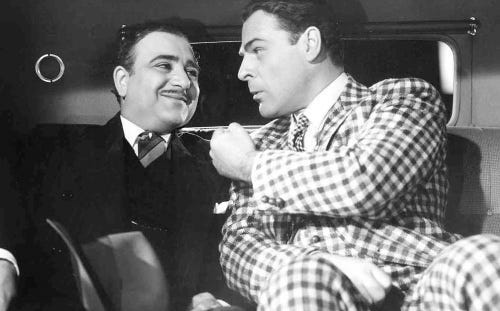
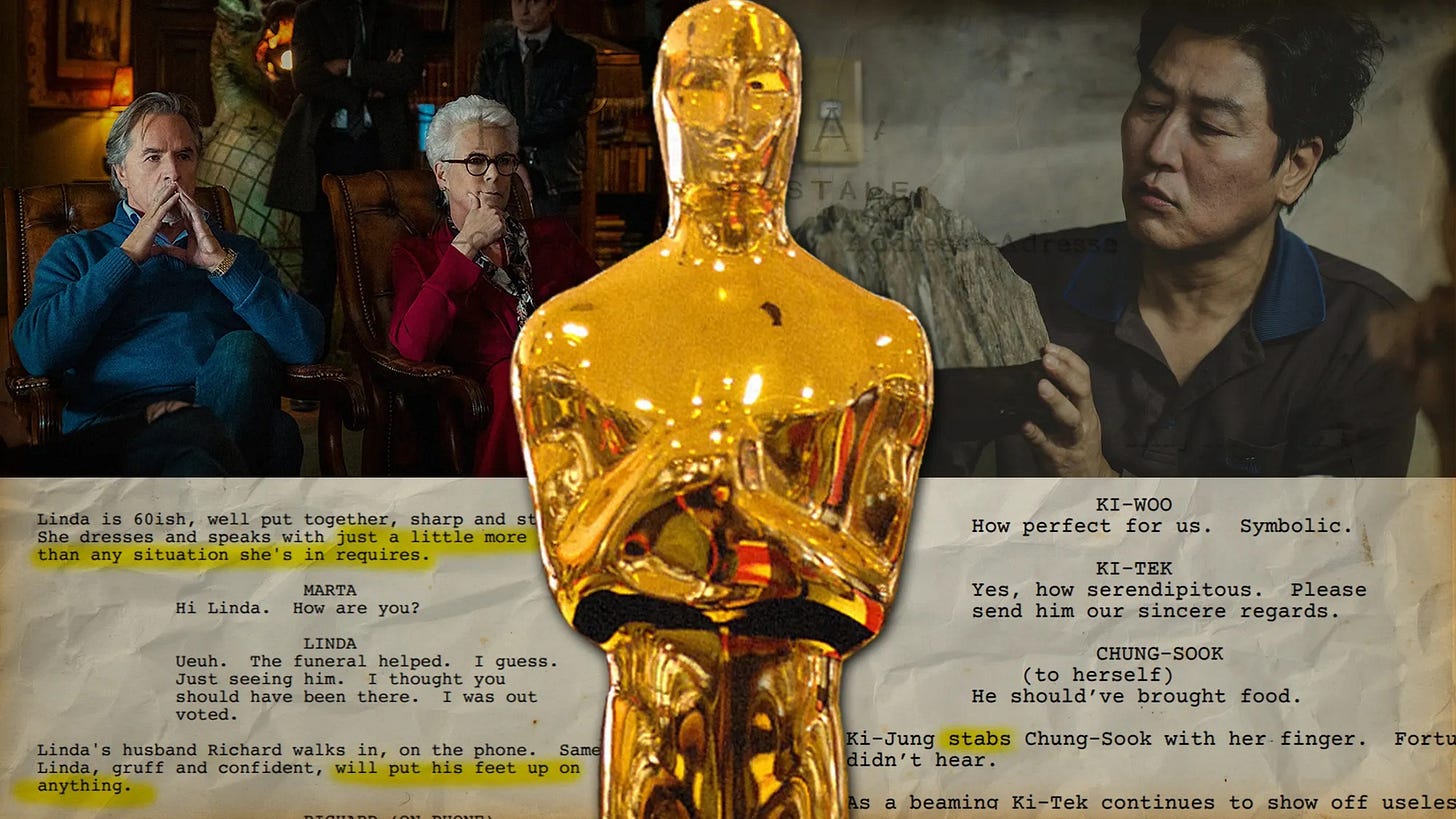
that didn't take long! I'd better go through the list with my human eyes and mind. thank you! and thanks for the link
I’m wondering whether you are going to be able to look at the original screenplay - or early drafts, or even the draft that went into production - and discuss where and why and how it changed in the edit?